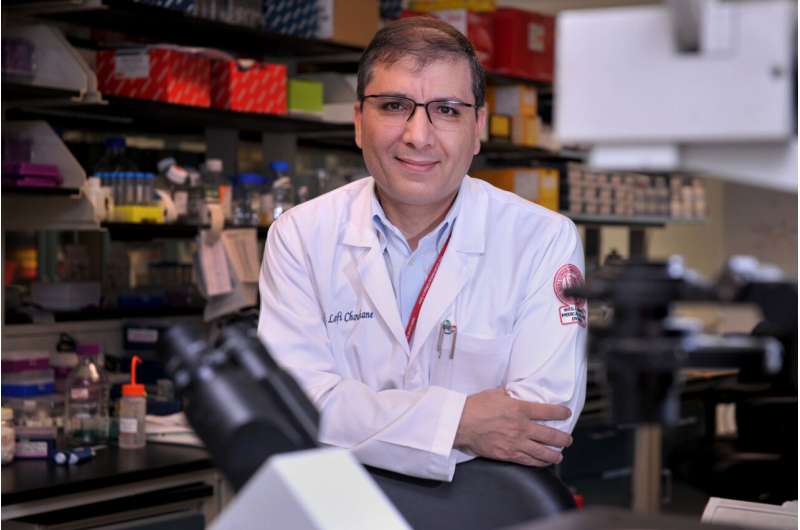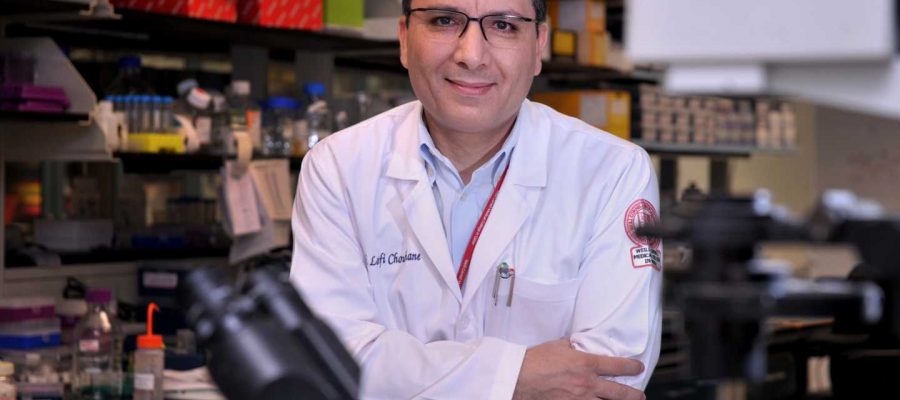
A group of researchers at Qatar Foundation led by Dr. Lotfi Chouchane from Weill Cornell Medicine—Qatar (WCM-Q) have reported the first landscape of cancer germline variation in the Middle East that has been published online in the Lancet Oncology.
The study, titled “Genetic predisposition to cancer across people of different ancestries in Qatar: a population-based, cohort study,” provides in-depth screening of both common and rare cancer genetic markers in the Qatari population.
The risk of developing cancer varies according to ancestry. The Middle East countries, including Qatar, are experiencing an alarming increase in cancer patients. Numerous disease-associated genetic markers, including of cancer, display substantial diversity among different populations. However, these potential disparities in genetic risk for cancer between ancestry groups remain poorly defined. The present study is shedding light on the cancer genetic markers found in Arab populations which could influence the development or progression of cancer, and is highlighting the high degree of heterogeneity of cancer predisposition across ancestries observed in the Qatari population. These findings should be considered for the implementation of national cancer preventive medicine programs.
Lotfi Chouchane, lead principal investigator of the study, says, “Incorporation of precision medicine technology, including cancer screening and genome sequencing, into the primary care system in Qatar has significant potential. The results of our study comprise a valuable source to capture cancer genetic markers in the different ancestries of the Arab populations, and define quantitative and qualitative expectations for the results of personal genome sequencing.
“With screening, prevention, and early detection at the forefront of the cancer agenda in Qatar, we propose to leverage the population genome sequencing by initiating national population testing programs to identify highly penetrant cancer gene mutation carriers like individuals being at an increased risk for hereditary breast or ovarian cancers. Our study is paving way to deliver a precision cancer prevention program in Qatar.”
“We are determined at Qatar Genome Program, along with our partners, to spearhead the transition from bench to bedside, and these research findings are the starting point to provide a personalized screening for health and disease in Qatar and the region.” Dr. Said Ismail, director of Qatar Genome Program, said.
Micheal Pellini, MD, said, “This paper gives great insights into how we could, and should, be thinking about cancer screening/risk in the future. If we can better understand a person’s, or even a subpopulation’s germline risk, we could tailor screening protocols rather than treating everyone the same. It will save resources and expenses, and result in much better, more personalized, care.”
Hamdi Mbarek, research partnerships manager at Qatar Genome Program from Qatar Foundation’s Research, Development and Innovation, said, “The study—part of the Qatar Genome Program Research Consortium and among several other ongoing projects focusing on diseases of national priority—also aims to fill the gaps of the underrepresented Arab ancestry in genomic research and contribute to increase diversity and equity, a key aspect to advance science globally.”
Disparities in genetic risk for cancer amongst various ancestry groups and populations remains poorly defined. This challenge is even more acute for Middle Eastern populations, where the paucity of genomic data could impact the potential of cancer genetic risk profiling.
Qatar Genome Program (QGP) generated high-coverage genome sequencing on DNA samples collected from 6,142 native Qataris, stratified into six distinct ancestry groups as general Arab, Persian, Arabian Peninsula, Admixture Arab, African, and South Asian. We evaluated the performance of polygenic risk scores (PRSs) for the most common cancers in Qatar (breast, prostate, and colorectal cancers). PRSs were trained in The Cancer Genome Atlas (TCGA) dataset, and their distributions were subsequently applied on the different genetic-ancestry groups of the Qatari population. Rare deleterious variants within 1,218 cancer-susceptibility genes were analyzed, and their clinical pathogenicity was assessed by ClinVar and the CharGer computational tool.
The cohort of the current study was recruited by Qatar Biobank between 11 December 2012 and 9 June 2016. PRS analyses of the most common cancers in Qatar showed significant differences between the six ancestry groups (P<0.0001). Arabian Peninsula Qataris showed the lowest PRS average for colorectal cancer (PRS = -0.41), and those with an African origin showed the highest average for prostate cancer (PRS = 0.85). Cancer-gene rare variant analysis identified 76 Qataris (1.24% of the 6,142 QGP individuals) carrying ClinVar pathogenic/likely pathogenic (P/LP) variants in clinically actionable cancer genes. CharGer predictions increased the total number of carriers to 195 individuals (3.17% of the cohort). Breast cancer pathogenic variants were over-represented in Qataris with a Persian origin (56.41% of the BRCA1/2 variant carriers) and completely absent in the Arabian Peninsula Qataris. Certain cancer variants with a potential founder-effect were enriched in the QGP cohort compared to other human populations (e.g., rs606231204 in EPCAM was found in QGP with a maximum allele frequency=0.22% but was absent in gnomAD v2.1).
Source: Read Full Article
